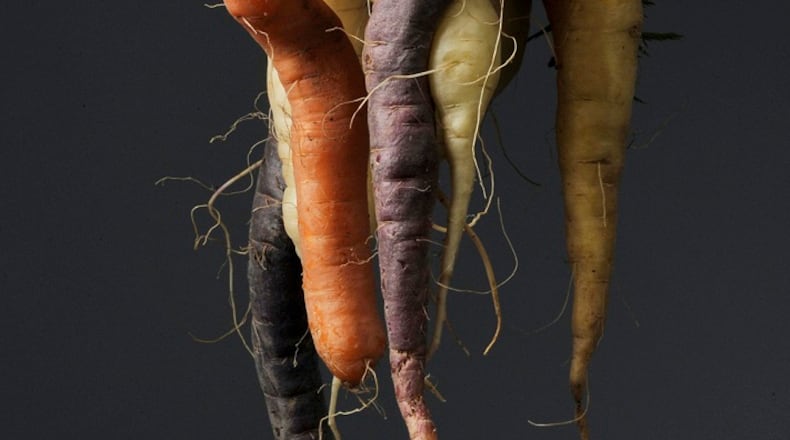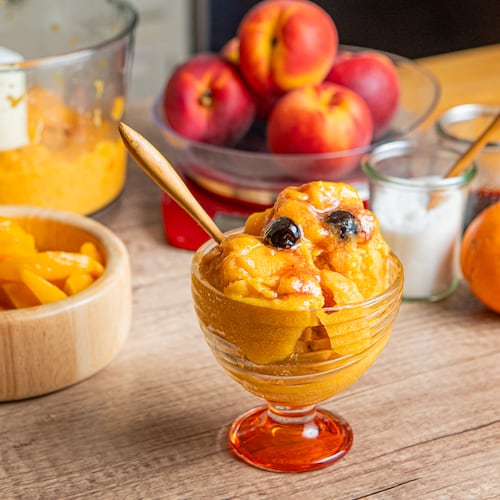Call it ugly, imperfect or cosmetically challenged, but the produce that used to get shunned for its looks is finally getting some love.
Yes, those three-legged carrots, squatty apples and eggplant with stuff protruding from it will be sold at select grocery stores, thanks to a nationwide social media campaign against food waste.
Jordan Figueiredo, a food waste activist from the Bay Area, launched the “Ugly Fruit and Veg Campaign” nearly two years ago as a way to raise awareness about the amount of food that’s rejected, partly because it fails to meet industry cosmetic standards.
Nationwide, the U.S. Department of Agriculture estimates that between 30 percent to 40 percent of the U.S. food supply is wasted.
“It can be too small, too big, in a weird shape or with a few scars, but it is still perfectly safe and healthy to eat,” Figueiredo says. “And to not make that food available to consumers is truly a waste.”
Figueiredo’s Instagram page, @UglyFruitAndVeg Campaign, has become a showcase for funky looking fruits and vegetables. Think carrots that look like they are hugging, or a pear whose bottom half reminds you of, well, Kim Kardashian’s backside.
So far, Figueiredo’s page has generated nearly 25,000 followers from 170 countries. And while the photos are intended to be fun, they also help tell the ugly produce story. The campaign has caught the attention of two national retailers.
Giant Eagle and Whole Foods have committed to carrying ugly produce on a trial basis.
Giant Eagle, a store chain with 400-plus stores on the East Coast, has joined the campaign and recently began offering ugly produce at a reduced price at five of its stores. The produce, including navel oranges, russet potatoes and apples, is being marketed as “Produce with a Personality.”
And recently, Whole Foods — which has 435 stores — agreed to carry ugly produce this spring at select Northern California stores. Liz Burkhart, Whole Foods spokeswoman, said the company has not finalized the specific locations.
As part of the program, Whole Foods will be working with Imperfect Produce, a Bay Area start-up that created a weekly delivery service of ugly produce. The company has about 2,300 active customers in Northern California with interest continuing to grow.
“There might be a scar on the outside that develops from rubbing against a limb as it grows; or carrots naturally can grow in all kinds of different shapes,” Simon said. “We’re taking a fun, bold, positive approach to celebrate these different quirks.”
Consumers in Fresno and Clovis, Calif., say they don’t mind produce that looks a little rough around the edges, as long as it’s not spoiled. Many use the odd looking fruits and vegetables to make jams or for canning. And if a potato or bell pepper has a defect, they cut it out.
“For many of us who grew up cooking, you learn not to waste what you have,” said Ann Kass of Fresno, who was buying produce recently at the Kaiser Permanente farmer’s market. “But then you also have people who want their fruits and vegetables to always look perfect.”
Farmers support the idea of selling their less-than-perfect fruit. The Masumotos of Del Rey, growers of organic peaches, nectarines and grapes, began a program about two years ago in which they sell fruit that is scarred, too small or bruised. They call it “Organic, Ugly and Fabulous.” The 10- to 12-pound box of “fab” fruit is sold at a discount that amounts to about $2 a pound.
“The response was wonderful,” says Nikiko Masumoto. “But the challenge for all farmers is how do we tell the story better so that people embrace imperfection as part of the natural growing process?”
Kiel Schmidt, development manager at Food Commons Fresno, said that the organization’s community supported agriculture program, or CSA, tries to use ugly produce as often as it can, but the supply can be limited.
In some cases, ugly produce is left in the field, or it gets sorted and sold to processors for a much lower price than retail. It may also be composted or sold as livestock feed.
“What we would like to do is make it worth the farmers’ while to put it in a box and price it so demand continues to grow,” says Schmidt, who helps run the Out of Our Own Backyards CSA. “This is quality food, and that is part of our message to our customers.”
About the Author
The Latest
Featured


